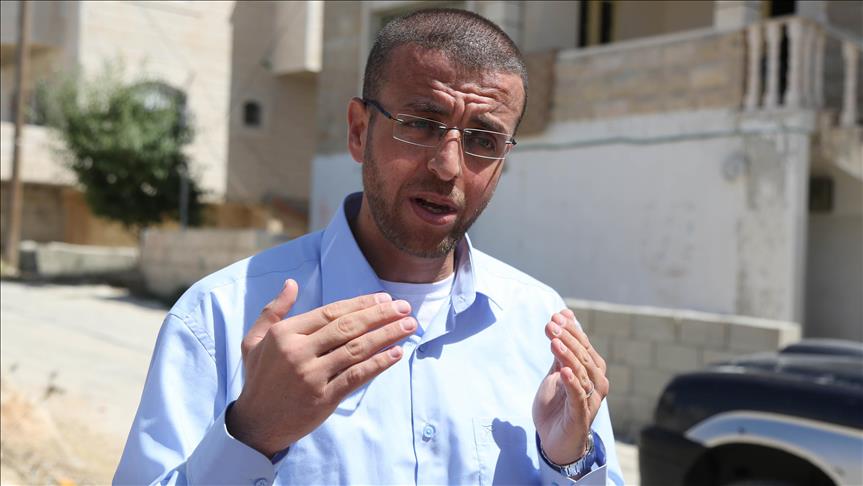
HEBRON, WEST BANK – MAY 20: Palestinian journalist Mohammed al-Qeeq, who was released from an Israeli prison, speaks during an exclusive interview in Hebron, West Bank on May 20, 2016. The 33-year-old had ended his 94-day hunger strike earlier this year after an agreement was reached to release him from custody on May 19. ( Issam Rimawi )
By Anees Bargouthi
HEBRON, Palestine
In an exclusive interview with Anadolu Agency, Mohammed al-Qeeq, a 33-year-old Palestinian journalist who waged a 94-day hunger strike while in Israeli custody — and who was finally released last week — called on his fellow prisoners to stand up to Israel’s unjust detention policies.
“It’s been a bitter experience, but it taught me to stand up for my rights and my freedom in the face of the [Israeli] occupation,” al-Qeeq told Anadolu Agency, referring to his lengthy time behind bars and his months-long hunger strike.
He said Palestinian political prisoners would continue their “war of the hunger-strikes” until Israel’s policy of “administration detention” was abolished.
Under the policy of administrative detention, prisoners can be held for up to one year without trial.
“Our hunger-strikes have broken Israel’s arrogance and shown that a belief in the justice of our cause will ultimately lead to victory,” al-Qeeq said.
He added that Palestinian prisoners would continue to resist until they received their legitimate rights.
Al-Qeeq began his hunger strike on Nov. 24 of last year, three days after being arrested by the Israeli authorities for alleged “incitement”.
The 33-year-old finally ended his hunger strike earlier this year — after 94 days — after an agreement was reached to release him from custody on May 19.
Over 7,000 Palestinians are currently languishing in prisons throughout Israel, 750 of whom are held in administrative detention, according to official Palestinian figures.
Solidarity
“The Israeli occupation tried — in every way — to break my hunger-strike,” al-Qeeq said, “but it failed to do so.”
He went on to commend the role of the Palestinian people in supporting him during his months-long hunger-strike.
“Popular solidarity played a significant role in making the Israeli authorities sign the deal [for my release],” he said.
At the time of his arrest, al-Qeeq — who originally hails from the village of Dura near the West Bank city of Hebron (Al-Khalil) — had been living in Ramallah, where he worked for Al-Majd TV, a popular Arabic-language channel.
“Soon I will return to my work as a journalist and reassume my role exposing the Israeli occupation’s crimes against the Palestinian people,” he said.
He went to assert that Israel feared Palestinian journalists due to their role in exposing the Jewish state’s crimes.
“Israel has raided TV channels and arrested dozens of reporters — but it will never silence Palestinian journalists,” al-Qeeq said.
Fayha Shalash, al-Qeeq’s 29-year-old wife, told Anadolu Agency that what was most important now was that Mohammed was back among his family and his people.
“We’ve gone through difficult days, but we always knew Mohammad would be released from jail sooner or later,” she said.
“Mohammed has become a symbol of dignity and an ambassador for freedom to the entire world,” Shalash said.




